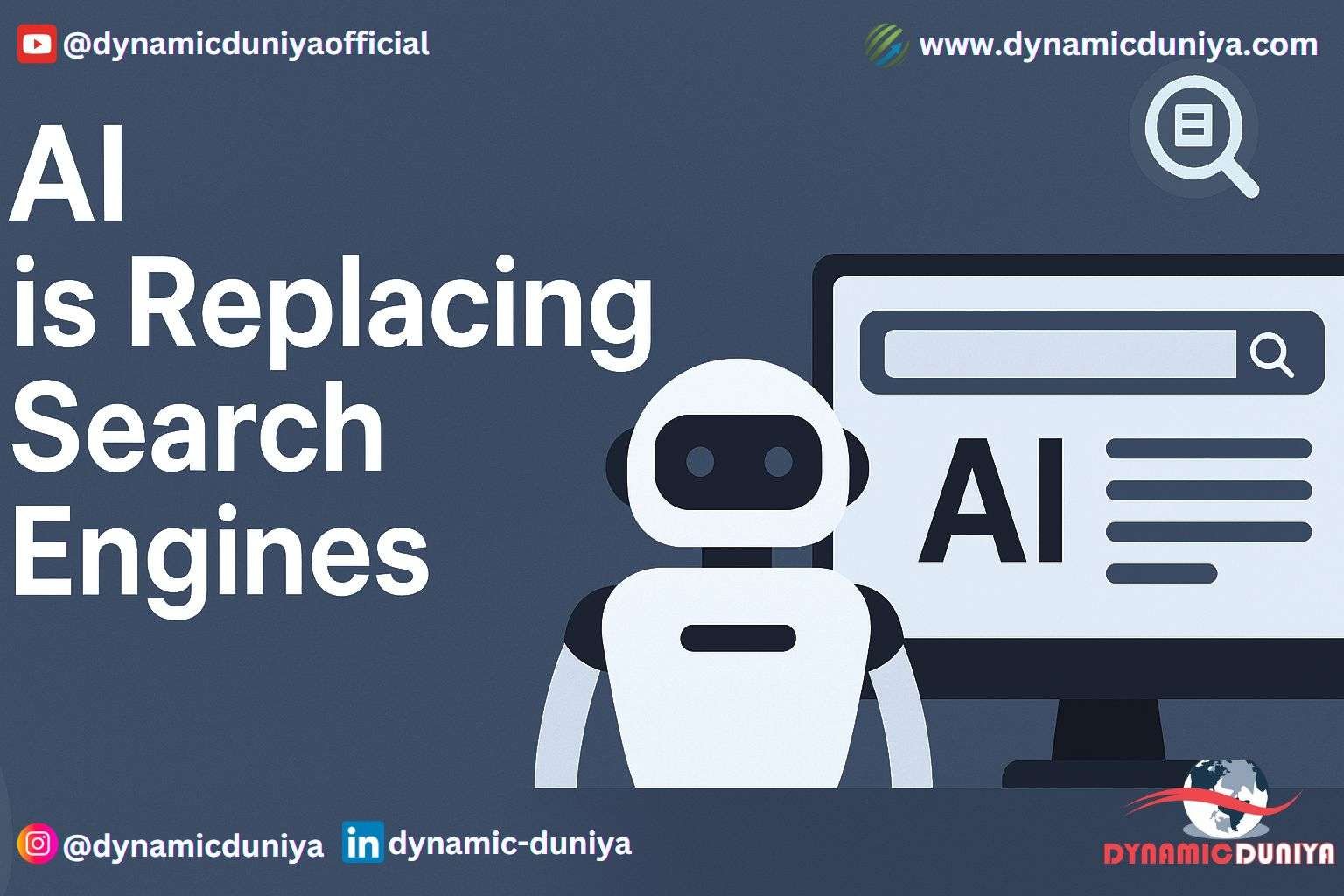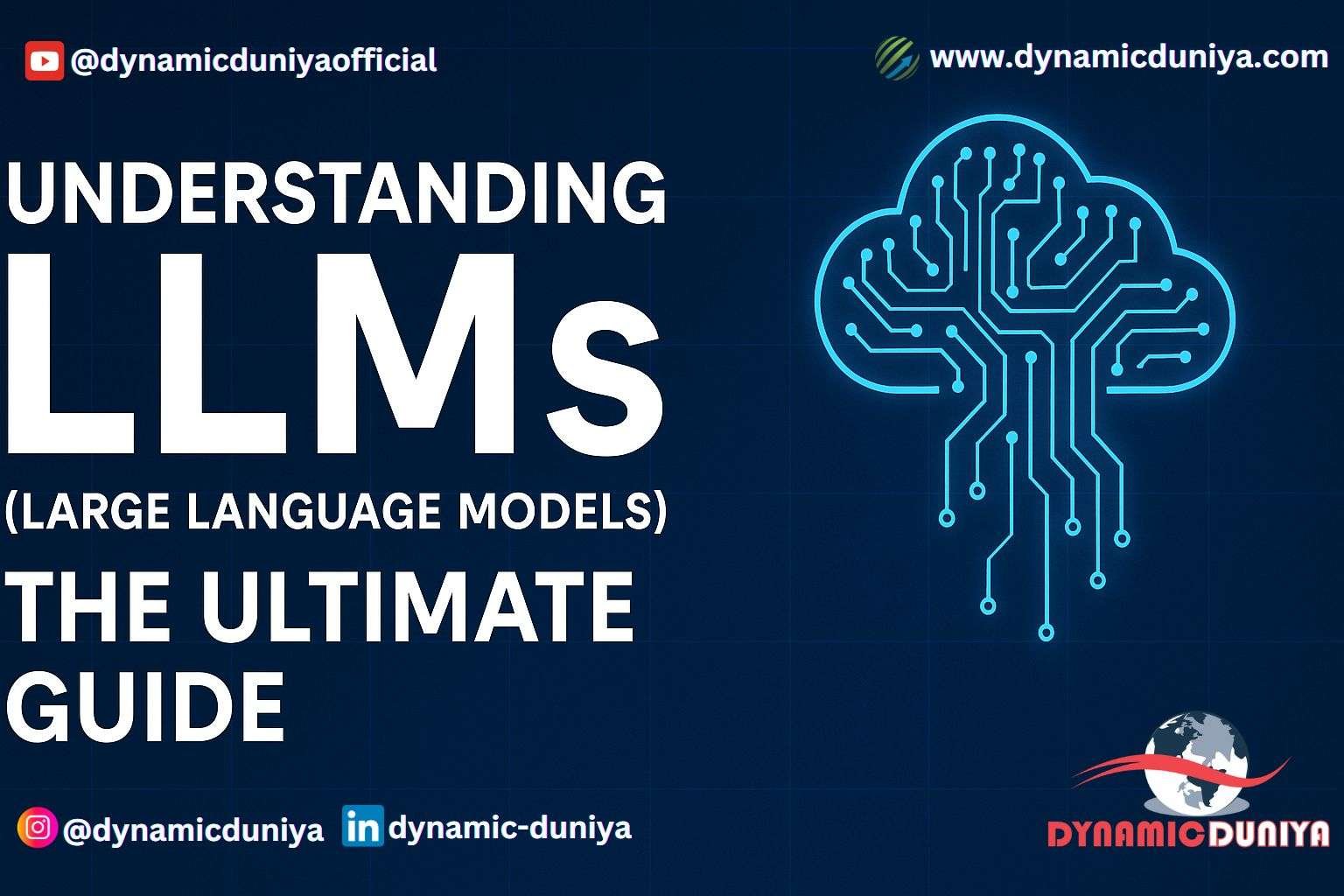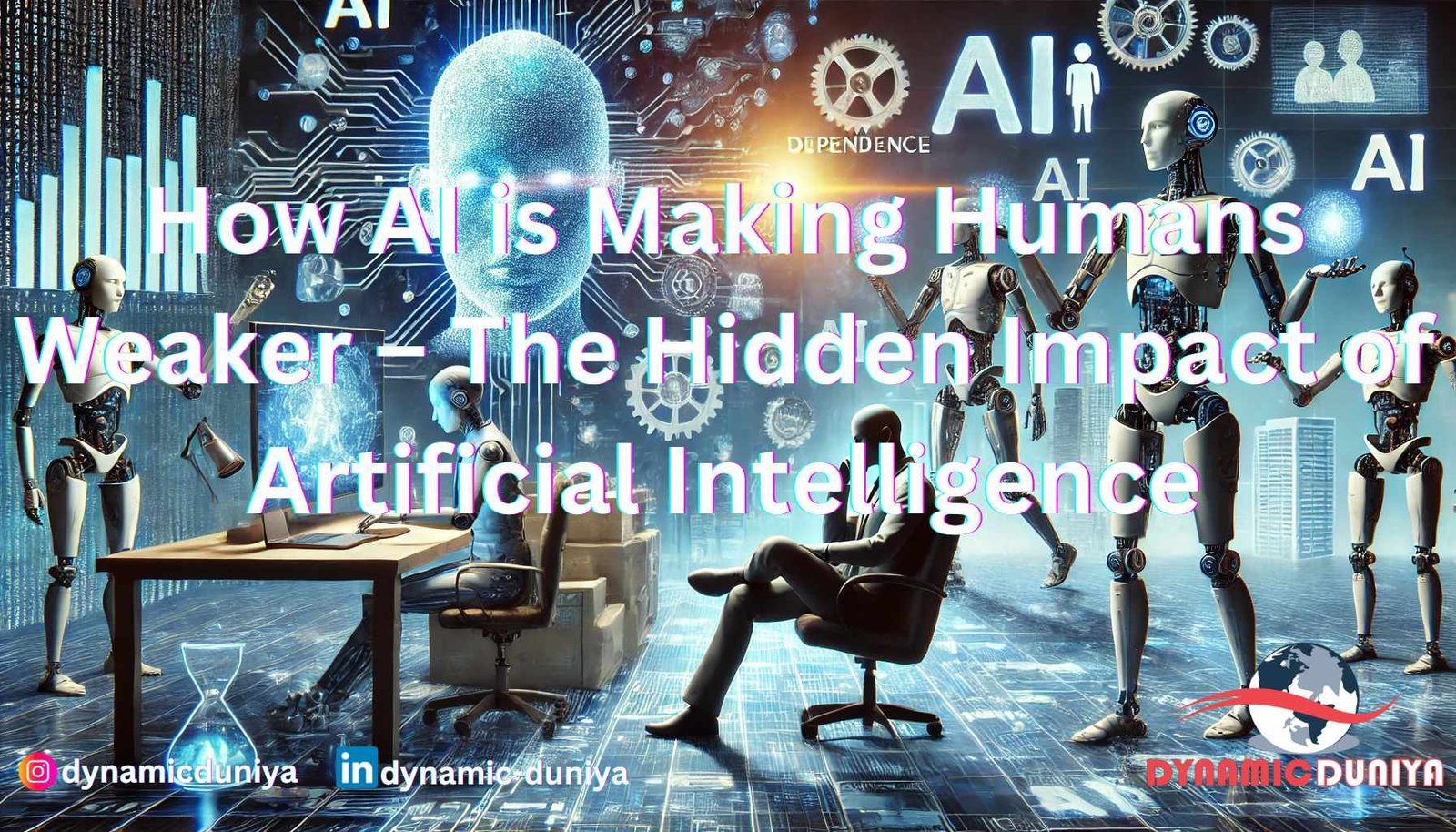AI is Replacing Search Engines: The Future of Online Search

Introduction: The Beginning of a Shift
For more than two decades, search engines like Google, Bing, and Yahoo have been the primary gateway to the internet. Users typed a query, scrolled through “10 blue links,” and clicked their way to information. But in the last few years, AI-driven systems like ChatGPT, Perplexity, Copilot, and Google AI Overviews have started to redefine this experience.
Instead of offering dozens of links, AI answers directly—summarizing, contextualizing, and even taking action on your behalf. This change has sparked a major question: Are AI systems replacing traditional search engines?
The short answer: Yes—at least for a growing share of tasks. Let’s explore why.
1. Why AI is Replacing Search Engines
The traditional model of search requires users to:
- Type a query
- Scan multiple links
- Piece together an answer manually
AI changes this. With a single query, you can now receive:
- A direct answer,
- Context and citations from across sources,
- And in some cases, follow-up actions (like drafting an email, generating code, or comparing products).
This shift prioritizes speed, convenience, and precision—the core reason why people are adopting AI-first tools.
2. The Big Players Driving the Shift
- Google: Added AI Overviews on top of results to summarize answers directly.
- Microsoft Bing: Integrated Copilot to deliver conversational answers with sources.
- OpenAI (ChatGPT): Released SearchGPT, a dedicated AI-first search engine.
- Apple: Embedded ChatGPT into Siri and Apple Intelligence, letting users get answers without ever opening a browser.
- Perplexity AI: Gained massive traction (over 150M+ monthly visits), proving demand for AI-native search.
Takeaway: Every major tech company now acknowledges that AI answers, not links, are the future of discovery.
3. Changing User Behavior
Statistics show the trend:
- Over 58% of Google searches end without a click—users are satisfied with the in-SERP answer.
- AI-native tools like Perplexity and ChatGPT Search are rapidly gaining users.
- Users increasingly prefer “one synthesized answer” rather than manually checking multiple websites.
The habit of “Googling it” is shifting to “asking AI.”
4. The UX Advantage of AI Search
Why do people prefer AI-powered answers?
- Summarization – AI reads across sources and presents a concise explanation.
- Contextualization – Instead of fragmented results, users get a narrative.
- Conversational Flow – Users can refine queries in natural language without retyping.
- Action-Oriented – AI agents not only provide information but also perform tasks.
Traditional search engines are reactive. AI is proactive.
5. OS-Level Integration: Goodbye Browser?
Another game-changing shift is where AI lives.
- With Apple Intelligence, Siri fetches AI-powered answers in-line.
- Windows integrates Copilot into the desktop experience.
- Browsers like Arc now read the web for you and return summaries instead of results.
This means that many queries never even reach a search engine—the assistant intercepts them.
6. The Economic Reality
AI-first answers also align with business incentives:
- Google keeps users in the SERP with AI Overviews, reducing outbound traffic.
- Microsoft gained ad revenue by embedding Copilot into Bing.
- AI platforms like OpenAI and Perplexity are exploring subscription + sponsored answers models.
For companies, the logic is simple: own the full experience, not just the referral.
7. From Search to Action: Rise of AI Agents
The next frontier is agentic AI.
Instead of just “finding information,” AI agents:
- Compare and recommend products,
- Draft documents,
- Generate reports,
- Even book tickets or complete purchases.
This bypasses search altogether and shifts the paradigm from “find” to “do.”
8. Limitations and Challenges
Despite its power, AI isn’t a full replacement yet:
- Hallucinations: AI can produce incorrect or misleading answers.
- Freshness: AI may lag behind for breaking news.
- Trust: Users still verify high-stakes queries across multiple sources.
- Dominance of Google: With ~90% global share, change will be gradual.
Thus, AI currently excels at knowledge tasks, while traditional search still leads in exploration and discovery.
9. How This Impacts Businesses & Content Creators
If you rely on organic search traffic, this shift is critical:
- Less referral traffic: AI reduces clicks to external sites.
- More in-answer visibility: Your content must be structured so AI can cite it.
- Need for structured data: APIs, schema markup, and concise summaries will increase AI visibility.
- Shift to AI-native platforms: Future growth may come from citations in Perplexity, ChatGPT, Copilot, not just Google SEO.
Adaptation is survival.
10. The Future of Search: 2025 and Beyond
- Hybrid discovery: AI delivers the direct answer, but links remain for validation.
- Assistants everywhere: From phones to desktops, AI agents intercept queries.
- New monetization models: Sponsored AI responses and premium search tiers.
- Agent economy: Personal AI agents will handle 50%+ of “search-like” tasks in the next 5 years.
Search isn’t dying. It’s evolving into AI-driven discovery and action.
Conclusion
AI is not just competing with search engines—it is redefining the very act of searching.
What began as a shift from links to answers is now accelerating toward agents that think, summarize, and act for us.
For individuals, this means faster access to knowledge.
For businesses, it means adapting to a world where visibility comes not just from Google rankings, but from AI citations and agent ecosystems.
The future of search isn’t about typing keywords. It’s about having a conversation with AI.
Random Blogs
- Time Series Analysis on Air Passenger Data
- AI Agents: The Future of Automation, Work, and Opportunities in 2025
- SQL Joins Explained: A Complete Guide with Examples
- 10 Awesome Data Science Blogs To Check Out
- Python Challenging Programming Exercises Part 2
- Extract RGB Color From a Image Using CV2
- What to Do When Your MySQL Table Grows Too Wide
- Datasets for Speech Recognition Analysis
- Navigating AI Careers in 2025: Data Science, Machine Learning, Deep Learning, and More
- Understanding LLMs (Large Language Models): The Ultimate Guide for 2025
Prepare for Interview
- JavaScript Interview Questions for 5+ Years Experience
- JavaScript Interview Questions for 2–5 Years Experience
- JavaScript Interview Questions for 1–2 Years Experience
- JavaScript Interview Questions for 0–1 Year Experience
- JavaScript Interview Questions For Fresher
- SQL Interview Questions for 5+ Years Experience
- SQL Interview Questions for 2–5 Years Experience
- SQL Interview Questions for 1–2 Years Experience
- SQL Interview Questions for 0–1 Year Experience
- SQL Interview Questions for Freshers
- Design Patterns in Python
Datasets for Machine Learning
- Awesome-ChatGPT-Prompts
- Amazon Product Reviews Dataset
- Ozone Level Detection Dataset
- Bank Transaction Fraud Detection
- YouTube Trending Video Dataset (updated daily)
- Covid-19 Case Surveillance Public Use Dataset
- US Election 2020
- Forest Fires Dataset
- Mobile Robots Dataset
- Safety Helmet Detection
- All Space Missions from 1957
- OSIC Pulmonary Fibrosis Progression Dataset
- Wine Quality Dataset
- Google Audio Dataset
- Iris flower dataset
- Artificial Characters Dataset
- Bitcoin Heist Ransomware Address Dataset




